I called my grandmother last night. She’s currently in a nursing home in Arkansas and feeling kind of blue. I can’t say that I blame her since she isn’t allowed any visitors now and her roommate, Theresa, refers to my grandmother as her daughter “Katie” and frequently steals my grandmother’s cell phone. (I guess if she thinks my grandmother is her daughter, she must assume she can use “Katie’s” cell phone!)
She’s still been getting the paper and watching TV because she was well-informed about the pandemic and everything happening in the counties around her. It made me even more aware of all the incorrect information that people are taking as “gospel” about COVID-19.
In fact, while researching this article, I came across one that indicated spraying your body down with alcohol or chlorine would help prevent you from getting the virus. Can you even imagine! Spraying bathroom cleaning agents on your body is a very bad idea. Think about…oh wait! It seems these myths are not grounded in thought at all. That one doesn’t even qualify as an old wive’s tale.
Here are some of my favorites and a brief explanation:
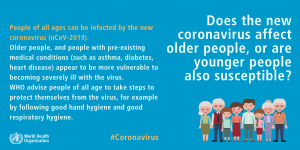
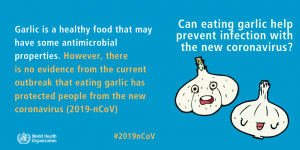
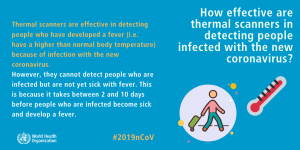
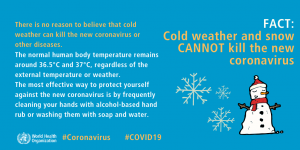
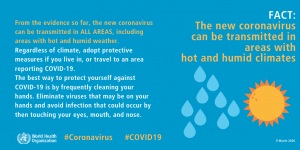
Warmer weather will stop the spread of the virus. [MYTH]
Marc Lipsitch (Yeah, I bet you read that as lipstick the first time too.), a professor of Epidemiology at Harvard indicated that:
For [COVID-19], we have reason to expect…it may transmit somewhat more efficiently in winter than summer…The size of the change is expected to be modest, and not enough to stop transmission on its own…Changing seasons and school vacation may help, but are unlikely to stop transmission.
Center for Communicable Disease Dynamics
Cold weather will stop the spread of the virus. [MYTH]
The World Health Organisation says there is “no reason to believe cold weather can kill the new coronavirus,” or other diseases, for that matter.
No fever=no COVID-19. [MYTH]
Just because you don’t have a fever does not mean you haven’t contracted the virus. The thing about the fever is that it is a good indicator, but the virus has an “incubation period” which is the time between contraction and the onset of symptoms. According to the CDC:
The role of pre-symptomatic transmission…is unknown. Existing literature regarding SARS-CoV-2 and other coronaviruses (e.g. MERS-CoV, SARS-CoV) suggest that the incubation period may range from 2–14 days.
CDC Information for Healthcare Professionals
As with vampires, garlic will keep COVID-19 away. [Myth]
I love garlic too, but this is just too much. Who really believes this? Garlic has some wonderful qualities, but preventing COVID-19 is not one of them. Although if your aim is social distancing, eat a bunch of it and see if it keeps people away!
I am young, therefore I am invisible to COVID-19. [Myth]
Nice try, but no. Individuals of any age can contract COVID-19. It does appear that older people and those with compromised immune systems are more likely to become seriously ill if they contract the virus, but that isn’t always the case either. Your best option right now is to stay at home.
Leave a Reply